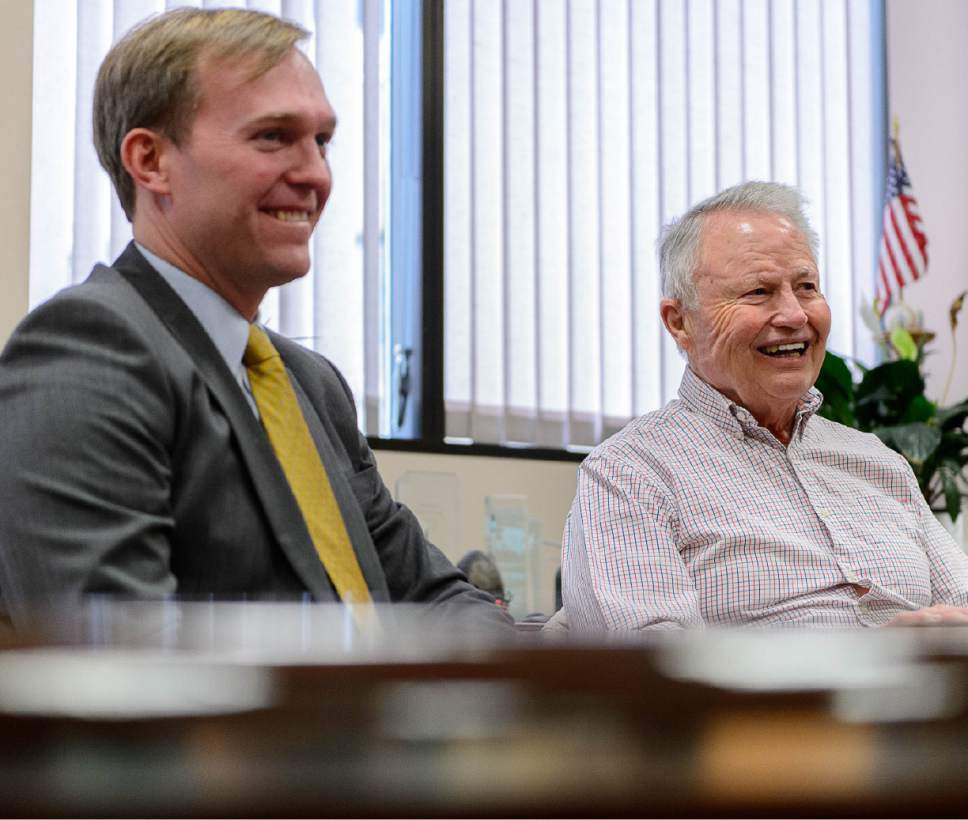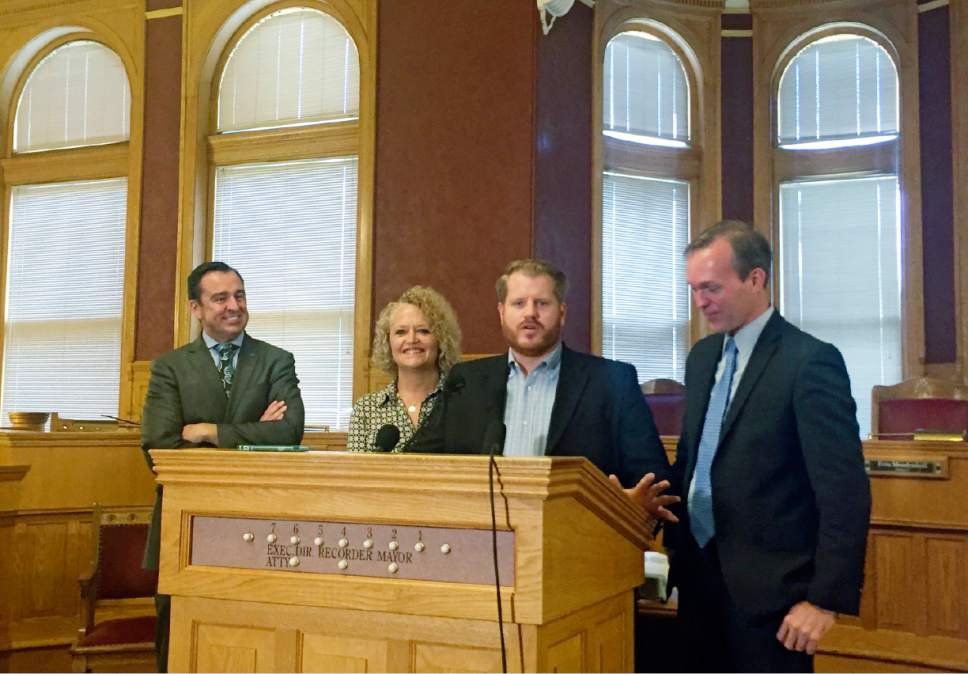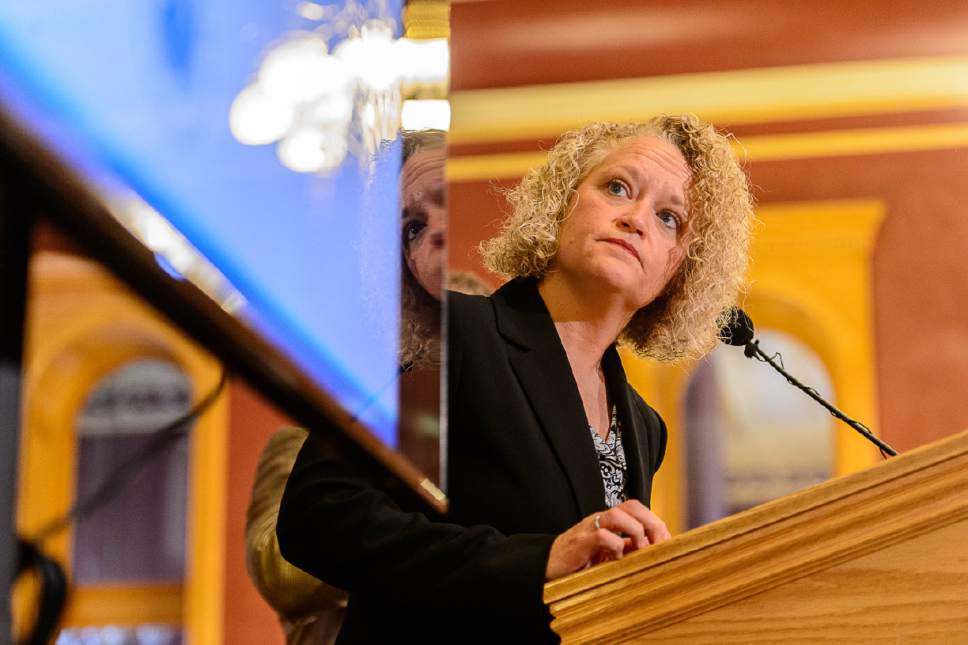This is an archived article that was published on sltrib.com in 2016, and information in the article may be outdated. It is provided only for personal research purposes and may not be reprinted.
The cost to build four 150-bed homeless shelters in Salt Lake City is expected to exceed the amount pledged by the state, leaving as-yet-unidentified private donors to pick up much of the remaining tab.
An estimate included by Salt Lake City in a request for proposal from architects pegs construction at $36 million to $40 million. The city paid nearly $10 million for the land, and the county will spend untold millions on services.
The Legislature has set aside $9.2 million and has a handshake agreement to provide nearly $18 million more over the next two years, but other funding obligations are being hashed out.
The price tag rose about $10 million in late September, when officials changed course toward four 150-bed sites that are expected to double as one-stop resource centers and reduce the overall homeless population.
Previously, the city and county had planned to build two 250-bed shelters at a cost of $14 million-$15 million apiece. Each 150-bed shelter is thought likely to cost about $9 million-$10 million, and the four-site model increases costs for land and staffing.
Officials say they're confident the community and the involved governments will make up the difference. They're just not sure yet precisely how.
Salt Lake City Councilman Stan Penfold said he expects private donors — like 79-year-old businessman Pat King, who pledged $4 million this week — to foot about half the total bill. In the case of the recently opened Eccles Theater, Penfold said, many donations were withheld until they broke ground.
Salt Lake County Mayor Ben McAdams said the timeline for construction is a moving target and depends on the availability of funding: He would like to begin building two shelters in 2017 and the others in 2018.
City spokesman Matthew Rojas said the city is "hopeful" to break ground on at least one shelter in 2017 and to have at least one shelter completed by 2018.
Timing is complicated, he said, by procedures related to zoning and conditional use.
House Speaker Greg Hughes, R-Draper, said Friday that competition for state funding is fierce, and legislators — who have yet to appropriate two-thirds of the $27 million — had hoped "we would be a little further along than where we are right now."
Hughes said he had urged city officials to choose their preferred sites or risk the state stepping in, because "I'd sooner pick those sites as a state than to see those dollars lost" in the general session.
He's pleased the city answered the call, Hughes said, but some legislators may be critical that the shelters aren't designed yet.
Rojas said the city "at this time" has no plans to ask the state for money beyond the $27 million to help cover the additional buildings.
City Councilman Charlie Luke said Hughes and McAdams joined Biskupski in the announcement of the four-site model and that their buy-in eases concerns about getting stuck with the bill.
But Luke said he doesn't want the shelters to "trickle" out one by one.
"Where I think [the additional cost] would hurt is if the city is perceived as dragging our feet and not moving things forward," Luke said.
The four sites announced last week by Salt Lake City Mayor Jackie Biskupski and the City Council are: 653 E. Simpson Ave. (2300 South); 275 W. High Ave. (1400 South), 131 E. 700 South and 648 W. 100 South.
The board of Shelter the Homeless, a nonprofit that owns The Road Home's shelter south of The Gateway shopping mall, reached a nonbinding agreement last month to swap the downtown shelter property with the city's Redevelopment Agency for the site at 648 W. 100 South when that shelter is completed.
A draft of the agreement, provided to The Tribune by the city in response to an open-records request, states that the 648 W. 100 South shelter "would be the fourth new resource center built."
The city's RFP says that one shelter will be for single women, one or two will be for single men, and one or two will "best serve the diverse population encountered within the homeless community."
Clarification on the site populations is expected at a meeting of the county's Collective Impact Steering Committee on Jan. 11.
According to the city's RFP, each shelter must "affirm innate human dignity" while offering sleeping, specialized services, day services, dining centers and outdoor spaces. Designers must incorporate community input from public workshops scheduled Jan. 11 and 18.
The design will be chosen by a team that includes representatives from the city, county and state, and the RFP notes that construction "may be managed by an entity other than Salt Lake City."
Twitter: @matthew_piper







